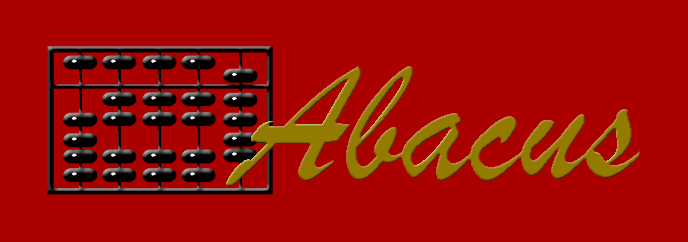
Services
- *** NEW ***
- Online Education
- What is Correct English?
- Acing the SAT
- Homeschool Classes
- Grammar Resources
- SAT Grammar Errors
Site Map
- AES Home
- Featured Resource
- Acing the SAT
- Education Journal
- Grammar Playsheets
- Grammar Resources
- Vocabulary tips
- Vocabulary Quiz
- Software
- Online SAT Resources
- SAT Grammar Errors
- Books on the New SAT
- Vocabulary Books
- Vocabulary List
- Vocabulary Crosswords
- Homeschooling
- Homeschooling
- Homeschooling Classes
- AP exam preparaion
- Homeschooling Books
- Homeschool on the Web
- Homeschooler Central
- Children's books
- The Wind in the Willows
- The Golden Age
- Language Reference
- Common Errors
- Subject/Verb mismatch
- Number (singular/plural)
- Case, declension
- Misplaced Modifiers
- Metaphors
- Mixed Metaphors
- Confused Verbs
- Sentence Fragments
- Run-on Sentences
- Parts of Speech
- Verbs
- Nouns, Pronouns
- Prepositions
- Adjectives
- Online Education
- Studying Online
- Online Higher Education
- Writing Class Online
- Online degrees
- Accredited degrees
- Recommended reading
- Children's books
- Cat Flinging
- Motorscooter Solution
- Wistful Vistas
- Thailand Escape
- Contact us
- Graded Links
. . .
Commonly Confused Verb Pairs
Lay and lie.
Even native
speakers of
English have trouble distinguishing between certain verb pairs which
share
forms and meanings, the most commonly misused probably being lie
and lay.
A transitive verb takes an object.
Lay is a transitive verb:
I lay the offensive soufflé before the embittered
in-laws. The verb lay acts
directly upon a
person or thing, in this case the soufflé, which is the object
of the verb.
By contrast, the
verb lie
is intransitive. It takes no
object and indicates the state of its subject: The
soufflé lies before the embittered in-laws. The
soufflé
is the subject and the verb lie gives its state.
English has several pairs of verbs that act
this way, one transitive and the other intransitive.
It is easier to recognize the differences between them by
considering the present, past, and past participle forms of each.
Lie/lay
|
present |
past |
past
participle |
|
lay |
laid |
laid |
|
lie |
lay |
lain |
Transitive: Today
I lay
the soufflé before the embittered in-laws.
Yesterday I laid it before the embittered in-laws.
I have laid it before the embittered
in-laws.
Intransitive: Today
the
soufflé lies on the table. Yesterday
it
lay on the table. It has lain on the
table since September when it was still marginally edible.
The lie/lay pair
is
particularly confusing as the past tense of the verb lie (lay)
is
the same as the present tense of the verb lay.
Other
oft-mangled pairs:
Fell/fall
|
present |
past |
past
participle |
|
fell |
felled |
felled |
|
fall |
fell |
fallen |
He fells a tree
and the
tree falls. Yesterday he felled the
tree and the tree fell. The fallen tree
was felled by a felonious furry fellow who fells firs that fall fast.
Raise/rise
|
present |
past |
past
participle |
|
raise |
raised |
raised |
|
rise |
rose |
risen |
Raise the flag
so they can
see it rise above the landfill. When it
rose, they could not understand why it would be raised where none had
ever
risen before.
She is raising a
rose to
rise higher than any other rose raised here has risen.
She rose late
again today
and then raised the issue of installing a luminous sundial for use before the sun has risen.
Hang/hang
|
present |
past |
past
participle |
|
hang |
hanged |
hanged |
|
hang |
hung |
hung |
The verb hang
is a
special case in that the older transitive verb hang/hanged/hanged
fell
into disuse and survived only through being used as a legal term for
execution
by hanging, while hang/hung/hung has come to be used in all
other
senses, both transitive and intransitive.
(The equivalent verbs in German are still used in their full
transitive
and intransitive forms: hängen, hängte, gehängt
and hangen hing
gehangen.)
Transitive: They wanted to hang him today for
rustling, but
that was pointless as they already hanged him yesterday.
They have hanged several rustlers,
confiscated their potato chips, and threatened to hang one passerby who
produced
excessive noise with an eel skillet and a runcible spoon.
Intransitive: Today the revolting image hangs on the
wall. Yesterday it hung on the wall. It has hung on the wall, evoking revulsion,
for years.
Note that, in each
of these
pairs, the transitive verb is regular, taking ed for its past
and
participial forms (except for laid, which has mutated a bit
from layed),
while the intransitive verb is irregular.
 Advanced Writing text for the student with little time and a low boredom threshold
Advanced Writing text for the student with little time and a low boredom threshold